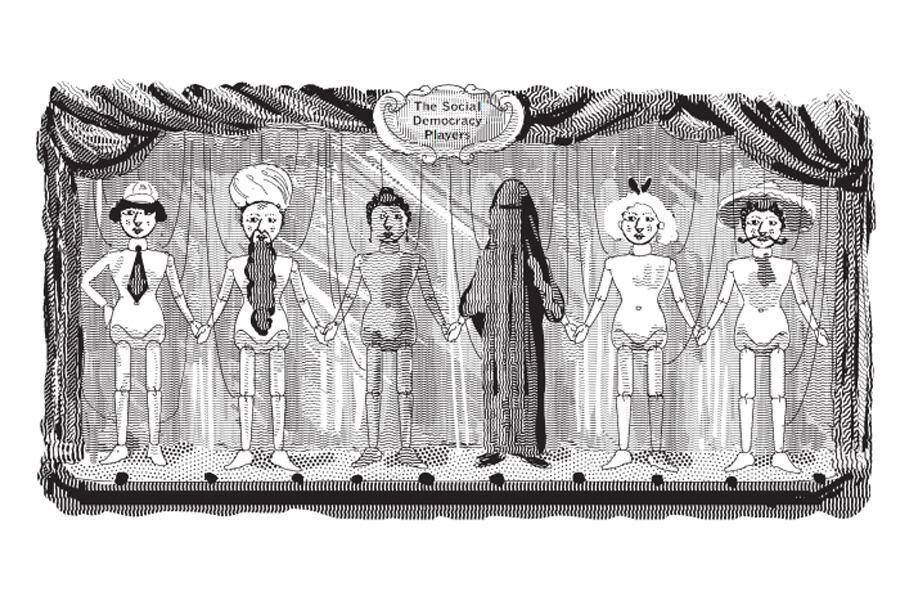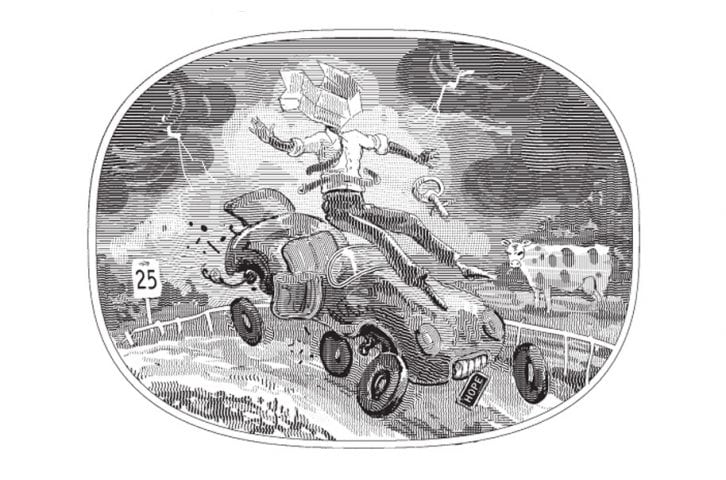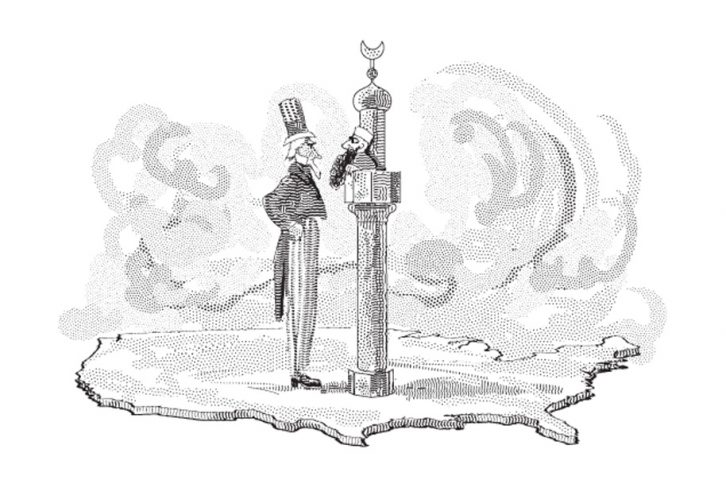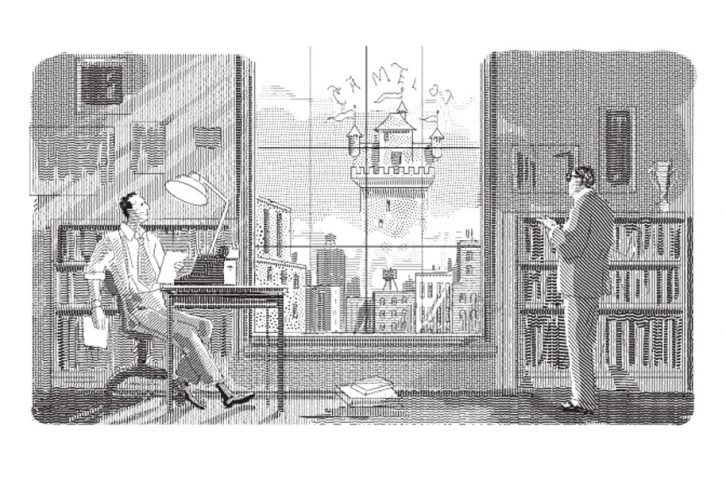Books Reviewed
A review of The Servile Mind: How Democracy Erodes the Moral Life , by Kenneth Minogue.
, by Kenneth Minogue.
Nowadays it is conservatives rather than liberals who stand up for liberty. Liberals have given themselves over to the advance of democracy, knowing not where it leads, and caring little for what might happen to liberty along the way of progress. Kenneth Minogue, professor emeritus of political science at the London School of Economics, stands up for liberty but refrains from adopting the conservative cause, preferring to pick and choose rather than to join up. He makes his own points, sets his own example, and saves himself the trouble of defending or correcting embarrassing companions in the struggle. He is nonetheless the author of a conservative classic, The Liberal Mind (1963), which as the title of his latest book, having abandoned irony and referring to the same thing, he now calls The Servile Mind.
This book is an update, including rethinking and reformulations, that absorbs the experience and legacy of the late '60s. Readers of the earlier work would not have been as surprised as most people were by that event, but they will now find its author somewhat less libertarian and more conservative. In The Servile Mind his targets are not cited by name, but they do not need to be. His expounding of the diverse items in the servile mind does more justice to them, and runs deeper, than do the statements of their exponents-the intellectual elite behind a new kind of democratic politics. Minogue has written a polemic without harsh words, striking blows without wounding feelings.
The book's title puts us in mind of Tocqueville's new "democratic despotism," a "sort of mild, regulated, and peaceful servitude," recently identified in Paul Rahe's Soft Despotism, Democracy's Drift (2009) as the long-term trend of politics in Europe. But as distinct from Tocqueville and many conservative American counselors today, Minogue does not make a point of the contrast between European servility and American freedom. From his supra-partisan stance he sees no relief by looking at America; he presents the problem as common to "Europe," which means the West.
The problem for Minogue is in the mind and in what he calls the "politico-moral," which is a politics directed by a new morality rather than a politics directing morality. A politics directing morality would be a democratic politics fashioning our thoughts and sentiments; but the danger comes from a super-democratic morality that desires more democracy than the people want on their own, which is more democracy than is possible or feasible, and above all, compatible with freedom. Minogue defends democracy in the name of freedom, and as what it is, versus the servility, already abundantly in evidence, that our intellectual elite has in store for it.
He first formulates this elite's sinister intent in the phrase "the wisdom paradox." Democracy presupposes that the people are sufficiently wise to rule themselves—even though half the population is of below-average intelligence! Not surprisingly, the government chosen by the unwise finds that the people are indeed unwise, incompetent to deal with misfortunes such as single parenthood, debt, adult illiteracy, obesity, various addictions; and moreover, "[m]any people, it seems, do not have the right feelings toward women, homosexuals, and members of other races." As citizens, the people suddenly lose the wisdom they had as voters. The government elected on the basis of equality spends its mandate full-time in attempts to equalize the pervasive inequalities in wisdom that it uncovers. It is not merely that the poor have less freedom than the rich, having less opportunity, but rather that they misuse the freedom they have, wasting what opportunity it provides. More equal freedom, therefore, in opportunities would actually lead to greater inequalities in competence. To make them choose well, government must solve their problems for them; it must create and nourish "the servile mind."
* * *
Thus the fundamental problem in Western democracy now, as Minogue sees it, arises from inequality not in wealth but in wisdom or competence. That is why he focuses on the mind. That is also why he does not speak much of rights. The intellectual elite behind the politico-moral project that he opposes does not say this is the problem they see, but in fact it is. Despite what they say, they do not merely, or mainly, want to equalize wealth; they want to equalize competence, through government programs that equalize power—to compensate for society's (perhaps nature's) unequal distribution of intelligence.
To do this it is not enough to ensure equal rights for everybody, because some will exercise those rights more effectively than others. Offensive differences will remain and become even more intense as merit takes over from privilege. Civil rights having to do with behavior are not enough; nor is the indifference of toleration. One must get to the thinking behind the behavior. The less competent and the more competent must be taught to think differently; and to accept that their own degree of competence comes from external conditions rather than individual merit. Those conditions can be changed, or in the case of natural privilege, compensated for, by government action, so that it is reasonable for government to become responsible for them.
In taking this responsibility, government negates and replaces individual responsibility, by which individuals can be praised or blamed for their merit and behavior. But again, to accomplish this government must first change behavior by taking over the thinking of individuals, by getting them to believe that only the government, not the individual, can be responsible for the fate of individuals. The poor, the deprived, the oppressed must be taught to look to government for solutions to their ills—all of which are social conditions—and the rich and powerful must be taught to submit to government, not grudgingly but in good humor, with "deference." As once Walter Bagehot spoke of the deference of the lesser sort to the better sort, now deference must flow in reverse, from better to lesser. Equalization must be applied to all, the less competent equalized up and the more competent equalized down. Then all will see that no one is individually competent. This equalization takes place in the mind, not merely in society by the redistribution of wealth. Freedom, in the governing elite's view, is a collective enterprise that depends on the creation of the servile mind. The servile mind is one that has learned that there are no free individuals, that everyone is a creature not of God or nature but of society.
There are echoes of Friedrich Hayek in this analysis, but Minogue does not go to the libertarian extreme of supposing that individual responsibility can be presumed, and that morality is superfluous to achieving it. It is not enough to agree on minimal laws and then let "spontaneous order" take over so as to produce a self-regulating society of freedom. Individual responsibility must be nourished with morality, which shows individuals how through acquiring the virtues, they can live in charge of their own lives; and it must be protected against the elite's counter-teaching that virtue is subject to the conditions of society, hence nothing to be proud of.
For Minogue, wisdom is the fundamental problem, but wisdom is shown sufficiently in competence to run one's life and thus in the maintenance of freedom. You don't have to be a philosopher—and not being a philosopher does not doom you to a servile mind (as in Plato's cave). Competent individual freedom is the proxy for wisdom that a democratic society needs, and so the contrary of the servile mind is not the philosophic mind but the free mind that operates by its own free will. Without a free mind, free will is enslaved to the opinion that freedom comes only from government. To free the mind, morality is necessary. Morality is not the end of freedom but rather freedom is the end of morality, and morality must be fashioned politically to make us free as competent, responsible individuals. For the sake of freedom, morality must be wary of justice, especially of "social justice" that empowers only government. Morality must be tolerant of mistakes if they are freely and deliberately chosen democratically, but this does not extend to tolerance for the mistake of denying morality and freedom together, in the project of the servile mind.
"Of course," writes Minogue, the project for achieving freedom through servility does not succeed in its goal. His book is liberally sprinkled with of courses that remind the reader of a reality that stands in the way of the project's goal—a recalcitrance in things that is either democratic or simply human or both. One feature of the servile mind that does not work is its internationalism, which demands that governments transcend borders in order to thwart national majorities. This is the well-known "democratic deficit" evident in the European Union, aimed at elevating government above the democratic prejudice in favor of one's own national democracy, which means elevating government above politics itself.
* * *
Another feature of the politico-moral project is the abandonment of trust in the decent conduct of others, replacing it instead with regulation or with lawyers and lawsuits. At the same time there is a loss of belief in the fallen condition of man and of the humility appropriate to it, as well as the consequent need to blame God, rather than man, for human ills. The trust of decent believers is replaced by the optimism of part-time cynics, worldly-wise about morality and delusional about politics. Morality is expressed in a similarly strange combination of certainty about the goal, say, of global justice, and relativism regarding the diversity of justice: moral superiority comes from one's recognition of the lack of any basis for moral superiority. This is the essence of "political correctness."
The welfare state wants to make it unnecessary to take care of oneself with thrifty prudence, thus changing "the terms of our engagement with life," Minogue argues, by removing the advantage of practicing that virtue. One could add that the advantage of thrifty prudence in self-help reappears in the guise of cunning when dealing with officers of the welfare state. The welfare state prefers the soft virtues, those not requiring sacrifice or responding to a sense of duty. It wants to save us from the pain of self-denial and from pain in general. Instead of honoring duty it seeks easy satisfactions and encourages impulsiveness by its clients, who eat ready-made meals bought at "convenience stores." Among the consequences of the notion of convenience—and also for sale in these stores—is abundant pornography, which saves men (and would save women, if they were interested) from one of the duties of marriage and from "the tiresome business of having to chat up the satisfying object."
People yielding to impulse rather than fulfilling a deliberated desire are easy subjects for manipulation by experts in bureaucratic regulation, who, as the wise managing the unwise, would rather cajole than explain, insinuate than argue. Critics are met by being ignored, enemies served with appeasement. Ills are diagnosed as "root causes," causes only government can address, and by means of spending other people's money—the very generosity Machiavelli recommends. Increasingly, the individual with a servile mind becomes a "singleton" without family, dependent on the favors of government, as isolated as he is also one of a herd, finding community in cowering, sharing weakness rather than cooperation.
In the end Minogue puts the blame for the politico-moral project on "the monism of perfectionism," which has replaced the healthy, realistic recognition of ambivalence or imperfection that previously characterized the West. But the blame might go just as well to the idea of a "project" for transforming—not just understanding and moderately reforming—the world. Monism is the result not so much of perfection as of the attempt to bring perfection out of thought and into political life. In America at least, "the one and the many" is a recognized ambivalence, both theoretical and practical, in the motto e pluribus unum. Our professors might translate it as "monism out of pluralism."





